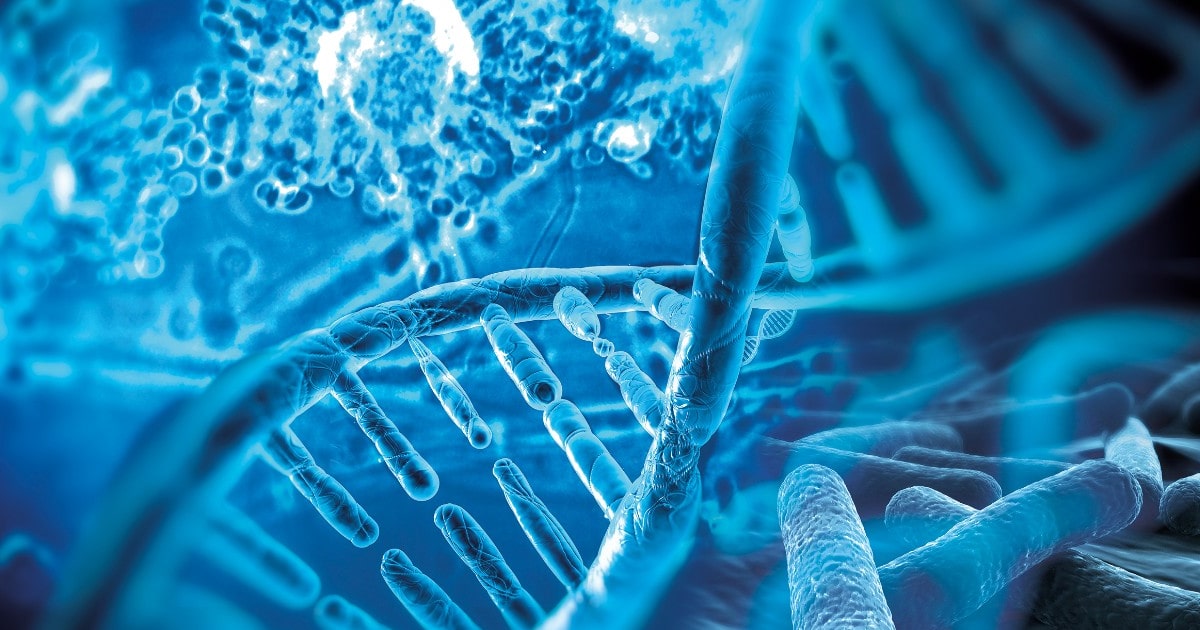
Expert Reviewed By: Dr. Brandon Colby MD
Calvarial doughnut lesions with bone fragility, also known as CDL-BF, is a rare genetic disorder that affects the bones. It can cause a range of symptoms, including weak and fragile bones, skull abnormalities, and in some cases, spondylometaphyseal dysplasia. In this article, we will explore the causes of CDL-BF, how it is diagnosed, and the role of genetic testing in managing this complex condition.
Understanding Calvarial Doughnut Lesions with Bone Fragility
CDL-BF is a rare genetic disorder that affects the bones, particularly the skull and the long bones in the arms and legs. The condition is characterized by the presence of doughnut-shaped lesions in the skull, which can lead to a range of symptoms, including headaches, seizures, and developmental delays. In addition, people with CDL-BF may have weak and fragile bones that are prone to fractures, as well as abnormalities in the spine and other parts of the skeleton.
The exact cause of CDL-BF is not yet fully understood, but it is believed to be due to mutations in the genes responsible for bone formation and maintenance. In some cases, the condition may be inherited from one or both parents, while in others, it may occur spontaneously due to a new mutation in the affected individual.
Diagnosing Calvarial Doughnut Lesions with Bone Fragility
Diagnosing CDL-BF can be challenging, as the condition is rare and its symptoms can overlap with those of other bone disorders. In most cases, a diagnosis is made based on a combination of clinical findings, imaging studies, and genetic testing.
Clinical findings may include a history of frequent fractures, developmental delays, and other symptoms suggestive of a bone disorder. Imaging studies, such as X-rays and CT scans, can reveal the characteristic doughnut-shaped lesions in the skull, as well as other bone abnormalities. However, these findings alone may not be sufficient to confirm a diagnosis of CDL-BF, as similar abnormalities can be seen in other conditions.
The Role of Genetic Testing in CDL-BF
Confirming the Diagnosis
Genetic testing plays a crucial role in the diagnosis of CDL-BF, as it can help to confirm the presence of mutations in the genes associated with the condition. By analyzing a sample of the affected individual's DNA, genetic testing can reveal whether they have one or more mutations that are known to cause CDL-BF. This information can help to confirm the diagnosis, particularly in cases where the clinical and imaging findings are not conclusive.
Identifying At-Risk Family Members
In some cases, CDL-BF may be inherited from one or both parents. If a person is diagnosed with the condition, genetic testing can be used to determine whether their parents, siblings, or other family members are also at risk of developing the disorder. This can help to identify at-risk individuals, who may benefit from early intervention and monitoring to prevent or manage complications.
Guiding Treatment and Management
While there is currently no cure for CDL-BF, genetic testing can help to guide treatment and management strategies. By identifying the specific mutations responsible for the condition, healthcare providers can gain a better understanding of the underlying causes of the bone abnormalities and develop personalized treatment plans to address them. This may include interventions such as physical therapy, medications to promote bone health, and surgery to repair fractures or correct skeletal deformities.
Contributing to Research
As a rare disorder, there is still much to learn about CDL-BF and its underlying causes. Genetic testing can contribute to ongoing research efforts by providing valuable information about the genetic mutations associated with the condition. This can help to improve our understanding of CDL-BF, potentially leading to the development of new treatments and management strategies in the future.
In conclusion, Calvarial doughnut lesions with bone fragility is a complex genetic disorder that affects the bones and can cause a range of symptoms. Genetic testing plays a crucial role in diagnosing the condition, identifying at-risk family members, guiding treatment and management, and contributing to research efforts. By increasing our understanding of CDL-BF and its underlying causes, we can work towards improving the lives of those affected by this rare and challenging disorder.
About The Expert Reviewer
Dr. Brandon Colby MD is a US physician specializing in the personalized prevention of disease through the use of genomic technologies. He’s an expert in genetic testing, genetic analysis, and precision medicine. Dr. Colby is also the Founder of and the author of Outsmart Your Genes.
Dr. Colby holds an MD from the Mount Sinai School of Medicine, an MBA from Stanford University’s Graduate School of Business, and a degree in Genetics with Honors from the University of Michigan. He is an Affiliate Specialist of the American College of Medical Genetics and Genomics (ACMG), an Associate of the American College of Preventive Medicine (ACPM), and a member of the National Society of Genetic Counselors (NSGC)